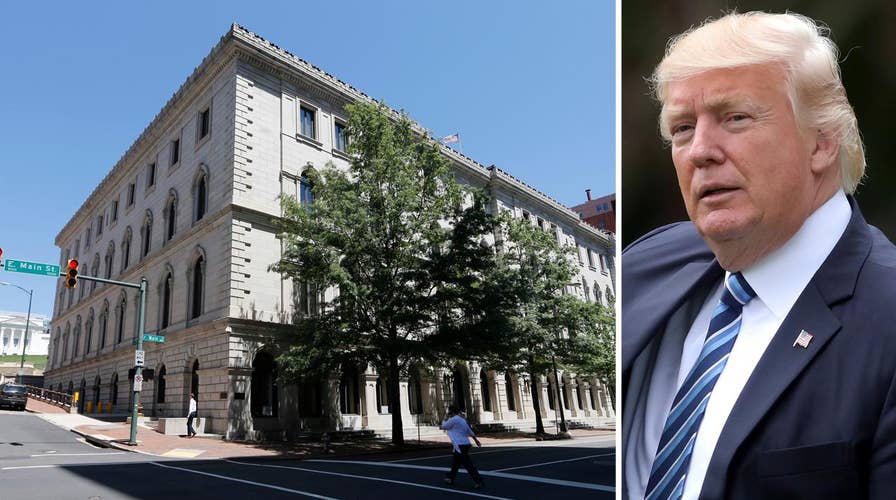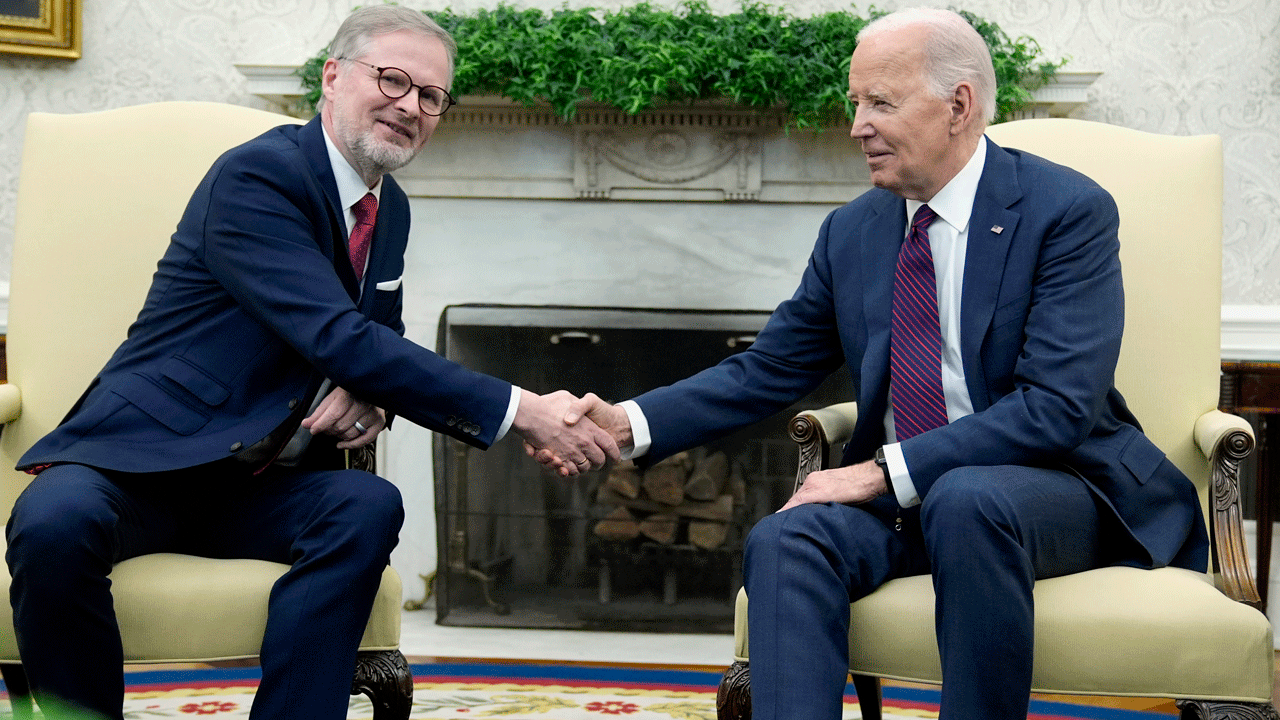Appeals court takes first look at revised travel ban
James Rosen reports from Richmond, Virginia
Former President Bill Clinton appointed the three judges who will hear the appeal of Hawaii’s challenge to President Trump’s travel ban targeting six predominantly Muslim countries.
Michael Daly Hawkins, Ronald Gould and Richard Paez sit on the San Francisco-based 9th U.S. Circuit Court of Appeals and will take up the arguments in the Seattle courthouse on May 15.
They will sit on a three-judge panel that was selected at random.
The judges will decide whether the ban violates the Religion Clauses of the First Amendment, the Due Process Clause of the Fifth and 14th Amendments, and the ban on nationality discrimination in the issuance of immigrant visas contained in a 65-year-old congressional law.
The White House frames the issue as a temporary move involving national security. Several groups in opposition have called the order blatant religious discrimination, since the six countries involved have mostly Muslim populations: Iran, Libya, Somalia, Sudan, Syria, and Yemen.
Clinton appointed Hawkins in 1994 after Hawkins served as Arizona’s top federal prosecutor from 1977 to 1980 and as a U.S. Marine Corps judge deciding court Martials from 1973 to 1976.
In 2012, Hawkins joined Judge Stephen Reinhardt's majority ruling striking down California's gay marriage ban. It was the first federal appeals court ruling that determined gay marriage bans were unconstitutional.
Gould was appointed by Clinton in 1999. He was a clerk for Supreme Court Justice Potter Stewart from 1974 to 1975 and worked at the prominent Perkins Coie law firm before his appointment to the court of appeals. Gould listens to oral arguments electronically from his Seattle court because of multiple sclerosis.
In 2014, he wrote the majority decision that high schools must provide the same athletic amenities to girls as boys. The ruling expanded the Education Department’s Title IX mandate to treat male and female college athletes the same.
Paez was elevated from the federal district court in Los Angeles to the appeals court in 1999. Clinton had appointed Paez to the district court five years earlier after Paez spent 13 years as a state judge in California. Before he became a judge, Paez worked as a staff attorney for the Legal Aid Foundation of Los Angeles, Western Center on Law and Poverty and California Rural Legal Assistance.
He wrote the majority opinion in 2011 that Arizona lawmakers went too far when they enacted strict immigration regulations, including making it a state crime to lack immigration papers. The Supreme Court later ruled similarly.
This is the White House's second effort to impose a travel ban. An order issued a week after Trump took office also was quickly blocked from taking effect. Nationwide protests were held in many cities and airports.
The Associated Press contributed to this report.





